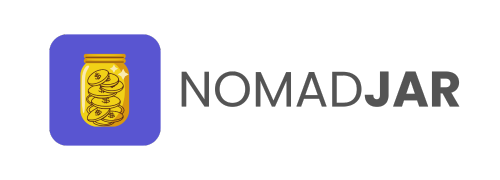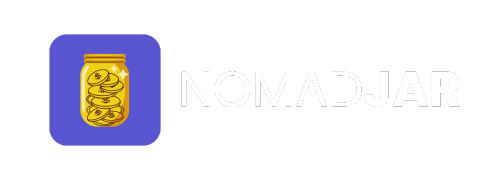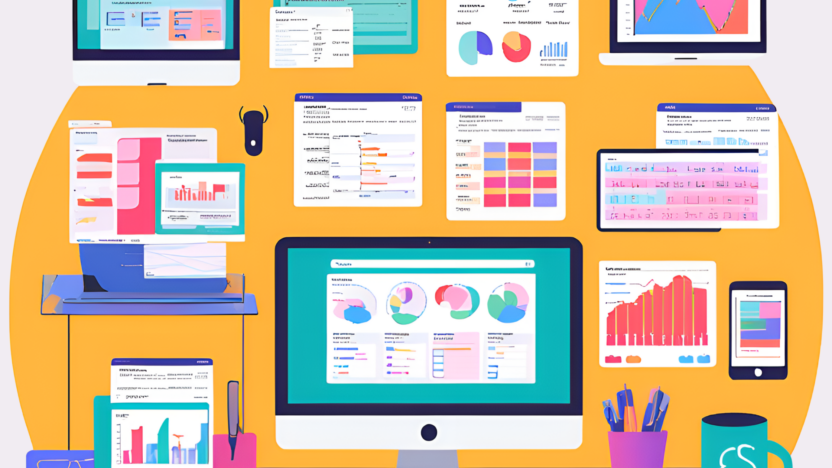Top Tools for Managing Taxes as a Digital Nomad
Managing taxes can be one of the most complex aspects of life as a digital nomad. With income sourced from multiple countries, ever-changing tax laws, and residency complications, staying compliant requires careful organization and the right tools. This guide explores the top tools available for managing taxes as a digital nomad, focusing on features that simplify compliance, optimize tax savings, and ensure accuracy.
1. Expensify
Expensify is a powerful expense management tool that helps track, categorize, and report expenses effectively. For digital nomads, managing expenses is essential for claiming deductions and preparing accurate tax filings.
Key Features
- Automatic receipt scanning using OCR (Optical Character Recognition).
- Categorization of expenses for tax purposes.
- Integration with accounting software like QuickBooks and Xero.
- Mobile app for tracking expenses on the go.
- Real-time expense syncing across multiple devices.
Pros
- Easy-to-use interface with detailed categorization.
- Cloud-based for accessibility from anywhere.
- Helps streamline business and personal expense tracking.
- Offers customizable expense policies for self-employed individuals.
Cons
- Free plan has limited features.
- Advanced tools may require a paid subscription.
- Users with complex tax needs may need additional integrations.
For more details, visit Expensify.
2. Koinly
Koinly is a tax software specifically designed for cryptocurrency users. Given the growing adoption of cryptocurrencies among digital nomads, Koinly simplifies tracking and reporting crypto transactions.
Key Features
- Automatic import of transactions from wallets and exchanges.
- Calculation of capital gains and income from staking or mining.
- Generation of tax reports compatible with multiple jurisdictions.
- Multi-currency support for global tax compliance.
- Detailed audit trails for regulatory requirements.
Pros
- Comprehensive support for crypto-related tax scenarios.
- Easy integration with major crypto platforms.
- Detailed reports for audit purposes.
- Supports FIFO, LIFO, and other accounting methods for flexibility.
Cons
- Pricing can be high for users with large transaction volumes.
- Limited functionality for non-crypto income.
- Advanced features may require technical understanding.
Discover more about Koinly at Koinly.
3. QuickBooks Online
QuickBooks Online is a versatile accounting platform that simplifies income tracking, invoicing, and expense management. It is particularly helpful for freelancers and small business owners among digital nomads.
Key Features
- Automatic bank transaction imports.
- Professional invoicing templates with multi-currency support.
- Tax categorization and reporting.
- Mobile app for on-the-go access.
- Integration with tax preparation tools for smoother filing.
Pros
- Widely used and trusted accounting software.
- Integration with tax preparation tools.
- Scalable plans to fit varying needs.
- Comprehensive reporting dashboards for financial insights.
Cons
- Costs can add up for advanced features.
- Learning curve for new users.
- Some features may require additional training.
Explore QuickBooks Online at QuickBooks.
4. Taxumo
Taxumo is a tax compliance platform tailored for freelancers and self-employed individuals. For digital nomads earning income in countries like the Philippines, this tool can simplify tax filing.
Key Features
- Guided tax computation and filing.
- Integration with payment gateways for easy tax payments.
- Notifications for deadlines and tax obligations.
- User-friendly dashboard for income and expense tracking.
- Support for regional tax regulations and updates.
Pros
- Simplifies tax filing for specific countries.
- Reduces errors in manual calculations.
- Ideal for self-employed individuals.
- Offers region-specific tax advice for users.
Cons
- Limited to specific regions.
- Less suitable for global tax reporting needs.
- Requires familiarity with local tax laws.
Learn more at Taxumo.
5. Nomad Tax
Nomad Tax is a service designed specifically for U.S. citizens living abroad. It provides expert assistance in navigating the complexities of expat taxes, including the Foreign Earned Income Exclusion (FEIE) and foreign tax credits.
Key Features
- Personalized tax preparation by expat tax experts.
- Assistance with compliance for FBAR and FATCA requirements.
- Advice on tax treaties and dual residency issues.
- Filing support for multiple income sources.
- Consultations for minimizing tax liabilities through exclusions and credits.
Pros
- Tailored to the unique needs of U.S. expats.
- Comprehensive guidance on minimizing tax liabilities.
- Strong reputation for expertise in expat taxes.
- Proactive support for tax planning and compliance.
Cons
- Limited to U.S. taxpayers.
- Higher costs compared to DIY solutions.
- Focused primarily on U.S.-specific tax scenarios.
Discover Nomad Tax services at Nomad Tax.
6. Xero
Xero is a cloud-based accounting tool ideal for digital nomads managing international business income and expenses. It provides multi-currency functionality, making it highly suitable for those operating globally.
Key Features
- Automatic bank feeds and reconciliation.
- Real-time multi-currency tracking.
- Customizable financial reports.
- Integration with hundreds of third-party apps.
- Support for payroll and employee management for growing businesses.
Pros
- Intuitive interface with robust features.
- Scalable for growing businesses.
- Collaborative tools for accountants and clients.
- Real-time reporting for informed decision-making.
Cons
- Limited offline functionality.
- Monthly subscription required.
- May require setup assistance for advanced users.
Find out more at Xero.
Tips for Choosing the Right Tax Tool
Selecting the right tool depends on individual circumstances, including:
- Income Sources: For crypto users, tools like Koinly are essential, while QuickBooks suits general freelancers.
- Residency Requirements: Platforms like Taxumo are region-specific, so consider tools aligned with your tax jurisdiction.
- Integration Needs: Choose tools that integrate with your existing systems, such as payment processors or invoicing apps.
- Budget: Free or low-cost tools like Expensify may suffice for basic needs, while premium tools offer advanced features.
- Scalability: Consider whether the tool can grow with your needs as your business or income streams expand.
- Support: Look for tools with reliable customer support to resolve issues quickly.
Conclusion
Managing taxes as a digital nomad can be complex, but with the right tools, it becomes significantly more manageable. From tracking expenses to generating tax reports and ensuring compliance, these tools simplify the process and reduce stress. Evaluate your needs, compare options, and choose tools that best align with your financial goals and lifestyle. Incorporating tax software into your routine not only saves time but also provides peace of mind when navigating international tax obligations.
Disclaimer: This article is for informational purposes only and does not constitute legal, tax, or financial advice. Consult a qualified tax advisor for guidance tailored to your situation.





